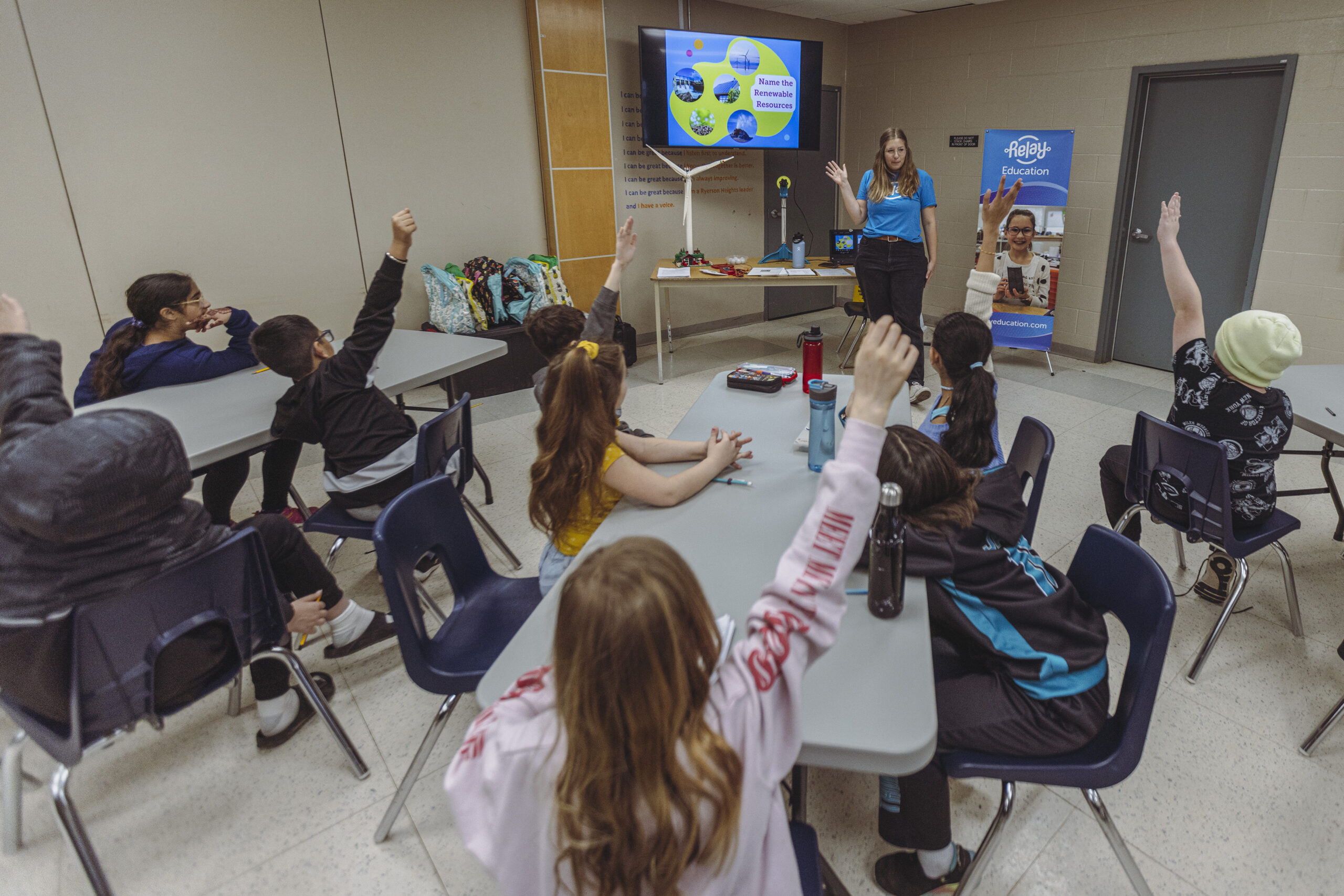Studies show Canadian students aren’t just worried — they want real solutions.
The impacts of climate change on people across these lands, on our communities, waters and infrastructure is more visible each year. Wildfire seasons are getting longer. Summer heat waves are more frequent. And extreme rainfall is flooding communities with little warning. These impacts cost us billions, devastate homes and pose a growing risk to people and ecosystems.
Canadians are understandably concerned about how climate change will affect both their immediate lives and long-term futures. This is especially true for youth. A 2022 study by Learning for a Sustainable Future found that 41% of students report feeling worried about climate change and 31% say they feel frightened.
The next generation gets it
Canadians know that the climate crisis is real. This is particularly true for students, with more than 75% believing that climate change poses a risk to Canada – and that we must do more to address it. That’s a significant win. Raising informed and empowered young people is an important step toward a resilient and stronger future. Feeling knowledgeable about the problem and the solutions can also be a powerful antidote to climate anxiety.
Students are asking for more
At the same time, many students feel that they aren’t learning enough about the climate crisis. One survey found that over 60% of young people want more formal climate education, and another showed that 85% want to know more about climate change.
Nearly 70% of students trust scientists to provide accurate climate information. Only 21% trust the government to do the same, suggesting there’s room to improve how governments communicate about climate change. About half of students say they get most of their information from social media – a space where misinformation spreads easily. We’ve shared a series on spotting climate misinformation — check it out on Instagram and Facebook.
Young people are ready to act
Not only are young people eager to know more about climate change, they’re also ready for solutions. Learning how to implement climate solutions is one of their top priorities for climate education. In fact, seven in ten students are willing to change their habits to fight the climate crisis.
“If we don’t learn or do anything about climate change, habitats will continue to get ruined and populations of species will go extinct.” Grade 11 Student, Chetwynd Secondary School, British Columbia
If you’ve been following climate action, this won’t come as a surprise. Young people are leading climate action around the world – from opposing pipelines in Canada, to taking governments to court in the US and Europe, to building local networks of support. Throughout history, youth have been at the forefront of social and political change, and the issue of climate change is no different.
But limited time and resources mean students aren’t always getting the full picture.
What’s holding climate education back?
The biggest barrier is there isn’t enough support in the education system to make it a priority. Over one-third of teachers report never teaching about climate change, with half saying they simply don’t have the time to fit it into an already packed curriculum. Only about 34% of surveyed teachers say they feel they can teach climate change accurately. Many are stretched thin and coping with climate anxiety themselves.
That’s where organizations like Relay come in. We offer workshops and teaching resources that help teachers fill the gaps in climate education and bring hands-on learning to the classroom. Check out our listings of workshops here.
Until more is done to strengthen climate education in classrooms, organizations like Relay are here to support students and teachers. Students are resilient and ready to take action despite limited support: 39% of surveyed students said they feel empowered to tackle climate change in 2022, which was an 11% jump from 2019. Organizations like Fridays For Future, Change Course Canada, Youth Climate Lab, and hundreds of groups are helping young people share information, access resources, and lead climate solutions in their communities and across the world.
—
Written by Ryan Zlatanova, guest contributor.
Sources
Learning for a Sustainable Future. (2023). “Canadians’ Perspectives on Climate Change & Education: Youth Knowledge Mobilization Session, Post-Session Report.”
Galway, L. and Field, E. (2023). “Climate emotions and anxiety among young people in Canada: A national survey and call to action.” The Journal of Climate Change and Health. 100204.

